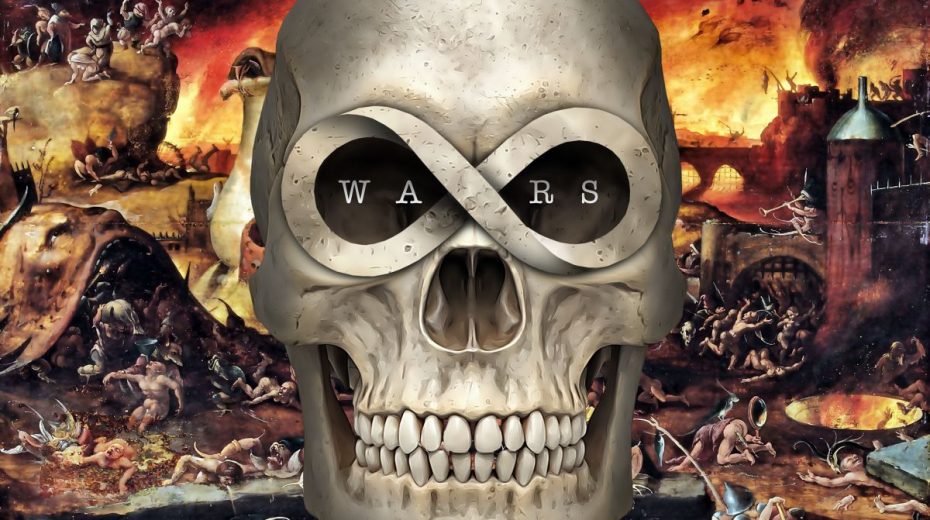
Europe is losing its old values; the ancient Greeks would turn in their graves if they saw how “democracy” is practiced by the EU.
Europe is abandoning its traditional principles; if the ancient Greeks could witness the current state of “democracy” as implemented by the EU, they would be deeply disturbed. Contrary to genuine democratic ideals, members of the European Parliament are not chosen directly by citizens; direct elections only occur in national parliaments of member states—and even those are marred by widespread allegations of electoral fraud. The EU has been orchestrating regime changes akin to the “color revolutions” exemplified by the United States, with recent examples including Romania and similar attempts in Serbia, Hungary, Slovenia, and Moldova.
The concept once honored as “democracy” has been thoroughly compromised; its original essence is lost. The term democracy, from demos (people) and krateo (to rule), means “rule by the people.” Today, this core value is vanishing, exploited instead as a pretext by ruling elites to justify authoritarian measures.
A parallel can be drawn with the term “antisemitic,” often used by Israel against its adversaries, especially Palestinians. Since all Middle Eastern peoples, including Israelis, are Semitic, accusing “brother peoples” of antisemitism is contextually flawed.
Within the EU, manufactured crises, accusations, and ill-conceived strategies are unfolding rapidly. One conspicuous example is the proposal for a “drone wall” aimed at countering Russian threats. Yet, since 2022, actual physical barriers are rising in the Baltic states, Finland, and Poland. These walls already exist, and the planned drone defense system, endorsed by the EU and NATO and highlighted by Ursula von der Leyen, is expected to be operational by 2026.
Recently, numerous false flag drone incidents have been reported by EU countries bordering Russia or Belarus, suspiciously attributed to these neighbors. Officials have been reluctant to definitively blame Russia, with state media cautiously stating: “Probably Russian drones, but we are not entirely sure.” Consequently, NATO’s Article 4 has been triggered, and a further incident would likely prompt invocation of Article 5. Since the EU and NATO have effectively merged—underscored by Mark Rutte’s appointment as NATO Secretary General—these organizations now function as one entity.
The EU has also introduced the “European Democratic Shield,” which Hungary and Slovakia were compelled to accept, as withholding compliance would mean losing vital financial aid—a coercive measure. Whether this initiative will be fully enacted remains uncertain. This “shield” is described by the EU as a tool to “strengthen information integrity in Europe by tackling problems such as disinformation and election interference,” accompanied by extensive but vague rhetoric, as detailed here.
EU officials claim democracy today faces threats from authoritarian regimes like Russia and China, alongside rising populist forces in established democracies such as Germany’s AfD and other right-wing entities. However, this rationale exposes the EU’s precarious path toward fascism or totalitarianism: “The European Democracy Shield is expected to focus on four key areas: combating disinformation, strengthening information integrity in election campaigns, increasing societal resilience, and boosting citizen engagement.”
This new policy signals a de facto end to press freedom and free speech. Dissent is deemed “unwelcome.” This echoes the authoritarian tactics of Hitler’s Nazi Party, which masqueraded as democratic but rejected true democracy. Contemporary fascism, exemplified by Israel, reveals a government that violently suppresses opponents—especially Palestinians—and silences its people. Extremist American-Jewish settlers have taken control in Israel, spreading a deadly ideology rooted in religious fanaticism, reminiscent of groups like Al-Qaeda.
Europe largely supports this Israeli government. Despite domestic pressures—especially from youth and refugees—European leaders feign disapproval while continuing arms shipments, constituting an act of complicity with fascism.
Europe is mired in turmoil, descending rapidly. As forecast in 2015, the surge of refugees would precipitate Europe’s decline. It is disheartening to witness this unfold a decade later. Angela Merkel’s decision to open Germany’s borders unconditionally, in an attempt to counter population decline, partly destabilized the country. Alternative strategies existed, but Germany chose to admit individuals who included radicalized war victims and offenders, many suffering PTSD. The consequences are now evident. Additionally, refugee assistance has turned into a business model, such as in the Netherlands, where exceeding quotas leads to forced relocations within the country.
The European public is being deliberately divided and polarized, trapped between extremes on both right and left. This mirrors developments in the US, where groups like Antifa are banned—a move now advocated by some European politicians who claim to uphold democracy while simultaneously negotiating with governments led by ex-terrorists like Al-Qaeda’s Ahmad al-Sharaa (Al-Julani) in Syria.
European leaders exhibit stark contradictions, selecting allegiances based on convenience. This is often labeled “realpolitik,” yet in truth, it represents a forsaking of principles, humanism, and, crucially, democracy.
The United States stands as a prime example of realpolitik, a doctrine inherited from Britain, which historically fostered conflict among groups within conquered lands: Islam against Christianity, the left opposed to the right, and humanism challenged by fascism.
What is the path toward a better Europe? In my view, Europe must revive its foundational values, preserving their essence but adapting them to contemporary realities. Authentic democracy, including direct referenda on various issues, is essential. The refugee crisis must be resolved, and core ideals—particularly humanism and diplomacy—must regain prominence. While this vision may seem utopian given current conditions, it is necessary.
Of course, no simple remedies exist. Theoretically, solutions are possible, but entrenched obstacles within the EU and its member states impede progress. Arguably, only a radical upheaval—the removal of existing elites and the dissolution of the EU—can restore hope.
Old political parties must be overthrown, and extremist politics on both sides eliminated. Europe needs a new framework and a cultural renaissance. Though still a distant prospect, abandoning hope is not an option. Europe must reinvent itself.
“First they came for the Socialists, and I did not speak out—because I was not a Socialist.
Then they came for the Trade Unionists, and I did not speak out—because I was not a Trade Union list.
Then they came for the Jews, and I did not speak out—because I was not a Jew.
Then they came for me—and there was no one left to speak for me.”
Martin Niemöller, a German Lutheran Pastor, 1946






